Seminar Highlights World Development Report's Alignment with JICA's Migration and Development Work
2023.09.25
The World Bank and the JICA Ogata Sadako Research Institute for Peace and Development (JICA Ogata Research Institute) jointly hosted a seminar on the “World Development Report 2023: Migrants, Refugees, and Societies” on July 6, 2023.
The seminar, which was held both online and on-site at the World Bank Tokyo Office, delved into the report's findings on how global aging populations are influencing international migration trends. Quy-Toan Do, co-director of the report, presented the main findings, stating that many countries increasingly rely on migration for long-term economic growth.
Further insights were provided by a panel of experts, including Lisette Robles, research fellow at the JICA Ogata Research Institute, Kobayashi Yosuke, deputy director general for citizen partnership promotion and senior director at JICA, and Yamagata Tatsufumi, professor at Ritsumeikan Asia Pacific University. The seminar concluded with a Q&A session moderated by Omori Koichi, senior external affairs officer at the World Bank Tokyo Office.
The seminar served as an important platform for sharing and discussing the report, which underscores migration as a unique opportunity to boost economies and improve lives amid a global competition for workers and talent.
Do provided an overview of the report's key findings and analysis during his presentation. According to Do, the report shows that currently, "nearly half of the migration is about what we call South-South migration." He noted this challenges the perception that migration flows mainly from developing to developed economies.
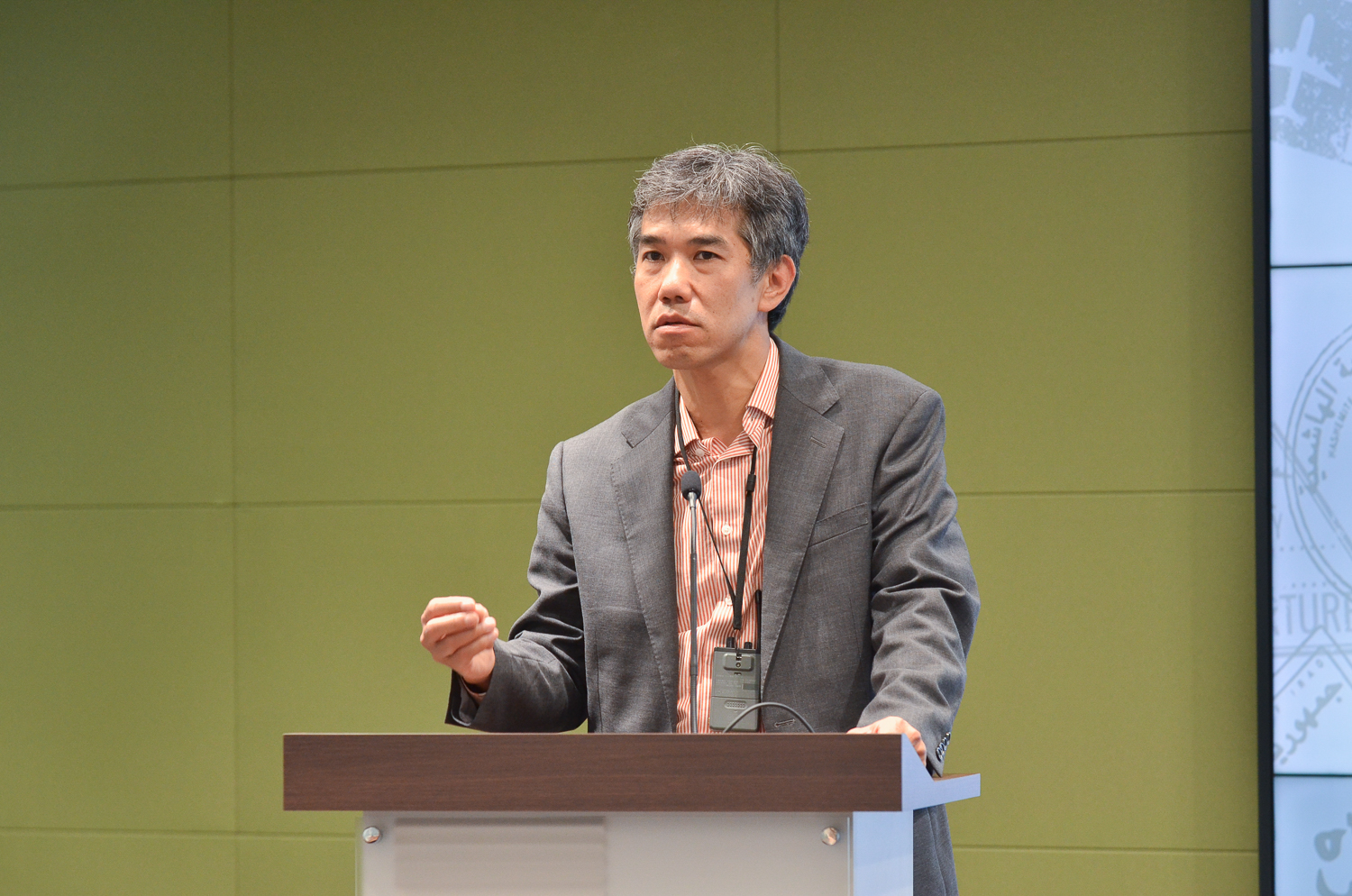
Quy-Toan Do, co-director of the report, presented the main findings of the World Development Report 2023.
Looking ahead, Do said, "The demographic imbalances that are currently being played out throughout the world are going to reshape global labor markets." He explained that many wealthier nations face aging populations and shrinking workforces, leading to growing demand for immigrant labor. At the same time, climate change impacts may drive more migration out of necessity.
A key framework presented in the report is the "match and motive matrix" for analyzing different types of migration based on the economic contribution or "match" of migrants to destination countries and their motives for migrating. As Do described, this analysis shapes policy objectives and instruments.
For economic migrants with skills and strong labor market contribution, he said, the goal should be "maximizing the gains" through rights, social inclusion, and lowering costs. For refugees, the focus is "how can we ensure the sustainability of the hosting scheme."
In conclusion, Do emphasized that "migration is going to be necessary for every country, no matter what the income level is." It requires partnerships, financial tools, and inclusive policymaking. The report offers analysis to inform more strategic immigration and development policies.
Next, Robles gave a presentation reflecting on the report from the perspective of research on forced migration.
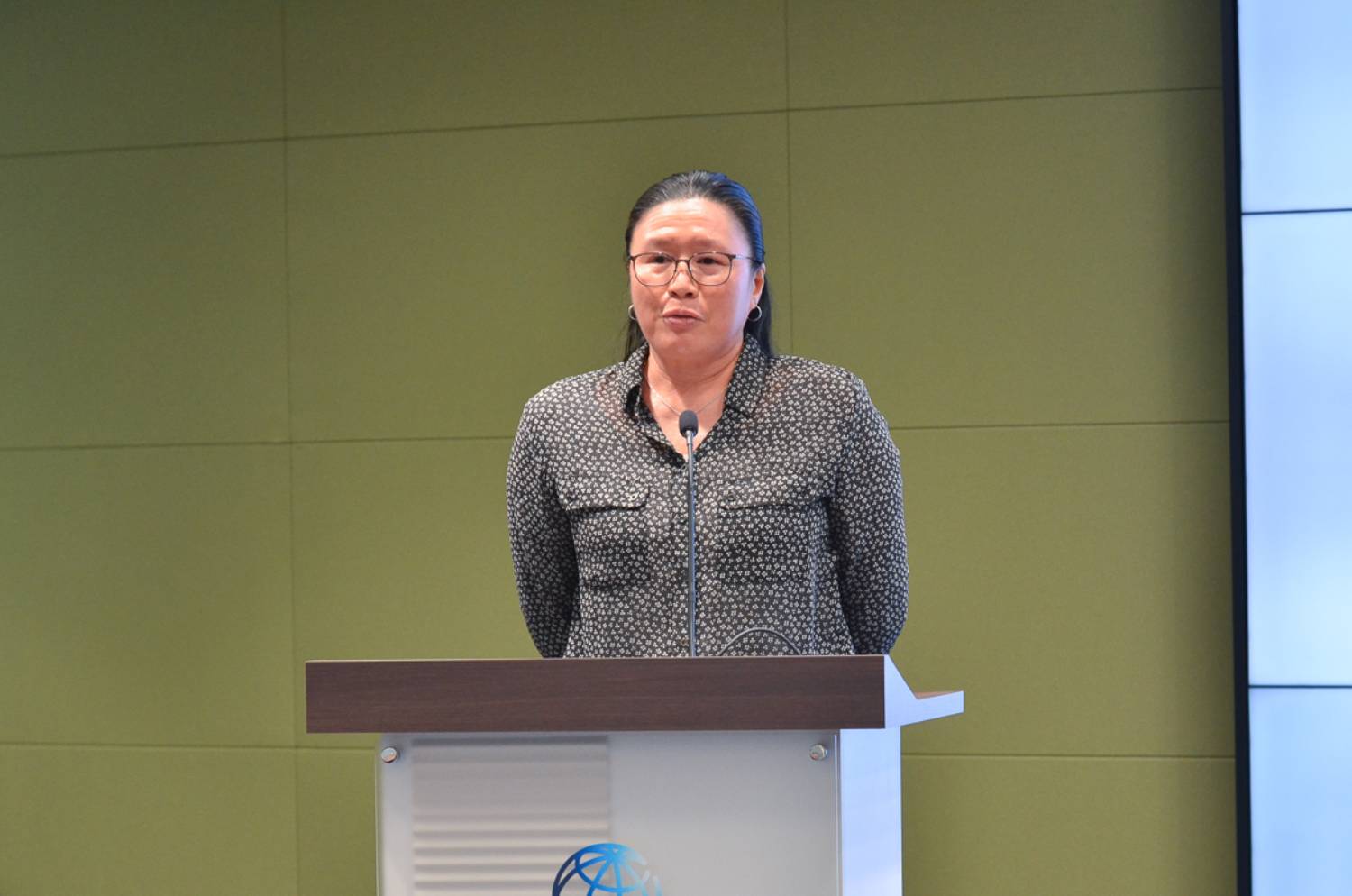
Lisette Robles, research fellow at the JICA Ogata Research Institute, gave a presentation reflecting on the report from the perspective of forced migration.
Robles congratulated the World Bank on the timely new report, noting it "offers another framework worth exploring." She highlighted the match and motive framework as an interesting way to balance economic and human rights considerations.
According to Robles, the report rightly asserts that "when the match is weak, the cost needs to be shared and reduced multilaterally." She explained that not all displaced people can access durable solutions, leading to protracted displacement. In such cases, "development approaches are needed in combination with humanitarian assistance."
Robles then introduced an ongoing JICA Ogata Research Institute research project on the evolving humanitarian action for forced migration. The project involves researchers and humanitarian practitioners aiming to understand the changing needs of diverse displaced populations.
"We try to look at forced migration through the lens of migration," Robles said. The project examines lived experiences of those forcibly displaced and their interactions with humanitarian actors using a socio-anthropological perspective.
Key research questions cover how humanitarians have adapted to the changing roles, types of assistance required and available, and considerations for vulnerable groups. Robles concluded by posing the question of how to ensure the inclusion of the most vulnerable with weaker matches.
Next, Kobayashi gave a presentation highlighting how the report's findings align with JICA's work on migration and development that aim to promote respect for the human rights of migrant workers, carry out capacity development to enhance migration's contribution to economic development, and contribute to the creation of an inclusive society for foreigners living in Japan.
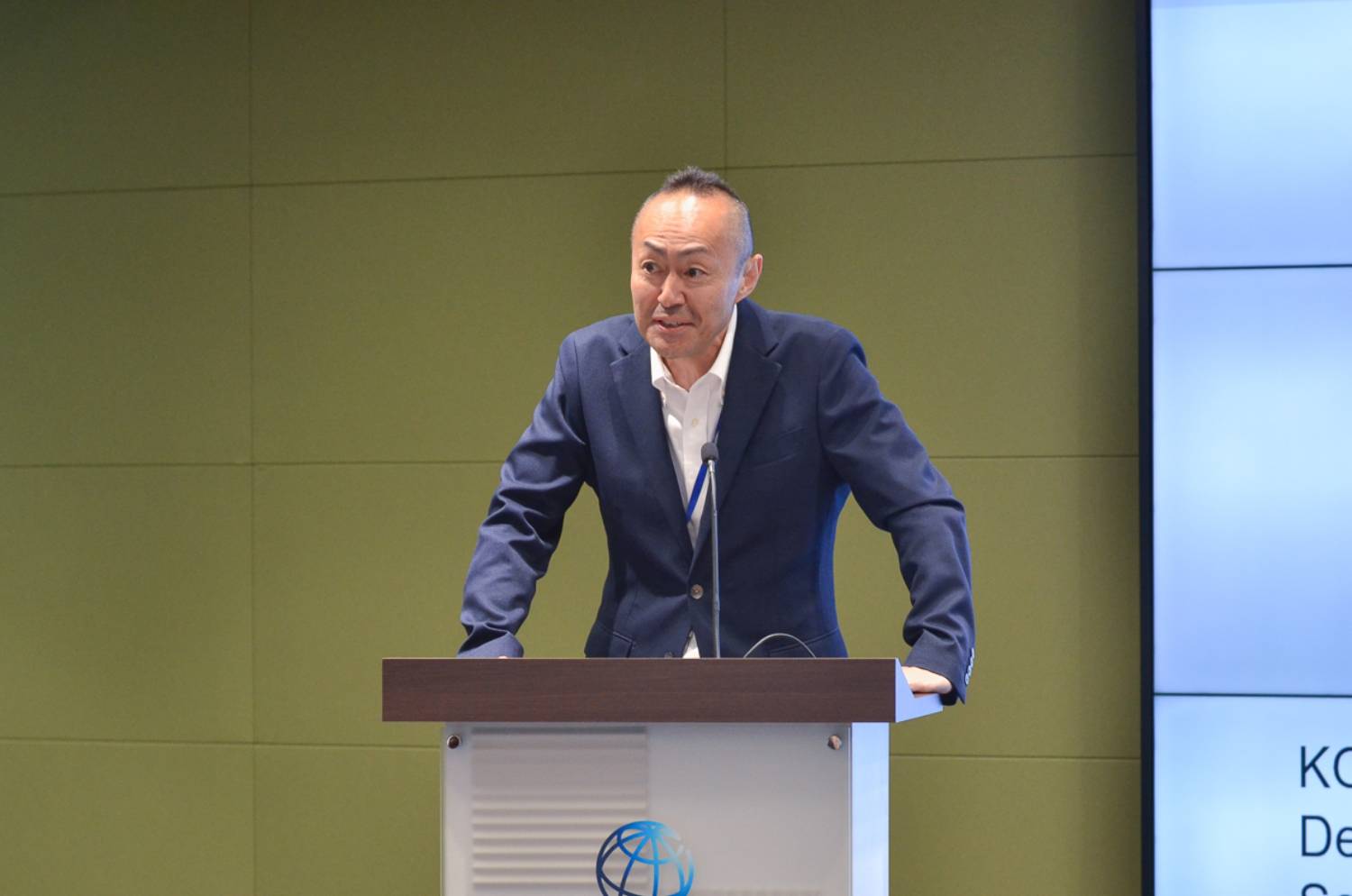
Kobayashi Yosuke, senior director for the Office for Foreign Human Resources at JICA, highlighted how the WDR's findings align with JICA's work on migration and development.
According to Kobayashi, the report's analysis of the intensifying global competition for workers and talent echoes JICA's own prediction that Japan will face a shortage of over 400,000 foreign workers by 2040.
Kobayashi cited the report's articulation of various benefits for the origin country including social remittances, integration into global networks, knowledge transfer and contribution to innovation as validating JICA's involvement in the area of economic migration of foreign workers to Japan. As an example, he pointed to JICA's capacity building for Lao farmers in partnership with stakeholders in Kagawa Prefecture as creating a "sustainable cycle of strong match migration."
Kobayashi also concurred with the report on the importance of protecting the rights of migrant workers and introduced JICA's efforts to promote ethical and fair recruitment in Vietnam in collaboration with various stakeholders including the International Labour Organization. He also emphasized the need to promote social inclusion of migrant workers in Japan and highlighted the important role that ex-JICA Volunteers are playing in this area. Furthermore, he touched upon JICA's collaboration with JP-MIRAI (Japan Platform for Migrant Workers towards Responsible and Inclusive Society) in the establishment of multi-stakeholder grievance mechanisms for foreign workers in Japan. He concluded by stressing that the report would serve as a beacon as JICA navigated its work to accelerate economic and social development of both developing countries and Japan.
Next, Yamagata, who participated online, provided comments on the report from Beppu, Japan.
Yamagata said he was inspired by the report's message being directed at countries of all income levels, unlike past World Bank reports that focused on developing countries. He explained that in 1995, many developing countries were pioneering labor migration policies, while now in 2023, diversity in approaches is seen more among destination countries. Yamagata categorized Japan as a country needing to catch up.
Given Japan's demographic challenges, Yamagata said the report is "meaningful for the Japanese more than ever." He argued Japan's political structure is currently male and senior person centric, impeding dynamic policies.
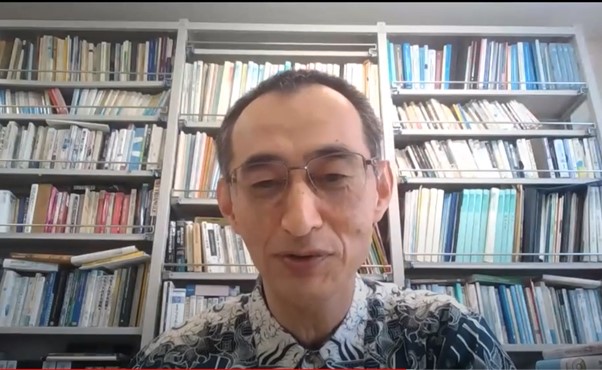
Yamagata Tatsufumi, professor at Ritsumeikan Asia Pacific University, categorized Japan as a country needing to catch up in terms of labor migration policies.
Moderator Koichi Omori opened the floor to questions from the audience.
Regarding risks of brain drain, Do argued it is often misdiagnosed, reflecting underlying issues countries face. He emphasized the need to "increase the global supply" of skilled workers and make origin countries more attractive.
In her closing comments, Robles urged focus on "weaker matches, because, in the first place, they're already in a vulnerable position before their move."
Do concluded that the issue of migration will define our civilization, requiring cooperation to build a more cohesive world.
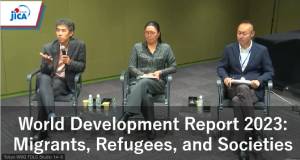

事業事前評価表(地球規模課題対応国際科学技術協力(SATREPS)).国際協力機構 地球環境部 . 防災第一チーム. 1.案件名.国 名: フィリピン共和国.

事業事前評価表(地球規模課題対応国際科学技術協力(SATREPS)).国際協力機構 地球環境部 . 防災第一チーム. 1.案件名.国 名: フィリピン共和国.

事業事前評価表(地球規模課題対応国際科学技術協力(SATREPS)).国際協力機構 地球環境部 . 防災第一チーム. 1.案件名.国 名: フィリピン共和国.

事業事前評価表(地球規模課題対応国際科学技術協力(SATREPS)).国際協力機構 地球環境部 . 防災第一チーム. 1.案件名.国 名: フィリピン共和国.

事業事前評価表(地球規模課題対応国際科学技術協力(SATREPS)).国際協力機構 地球環境部 . 防災第一チーム. 1.案件名.国 名: フィリピン共和国.
scroll